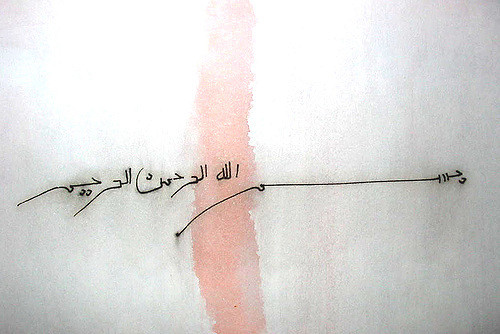Muslim Microlessons are regular spiritual nuggets by Omer Mozaffar, who has received Islamic studies training both through traditional and academic sources, and has addressed theological, personal, social matters for college students of all sectarian outlooks.
It is necessary that we have some brief exploration of sacred practices and spaces. This letter will not give you a fatwa on observing various traditions, but it will give one point to consider: we must regard the sacreds of other people as things to not harm.
If someone — especially a non-Muslim in your immediate and extended family — regards an observance as sacred, then you should respect it as something they take as sacred. The first mistake many people make is to make a play of the sacred observances and sacred spaces of other people. Some of our students decided to use the Christian prayer space next to the Musalla to cuddle up with their boyfriends and girlfriends. I suppose that partition between the men’s and women’s Musalla sections made “cuddling” less romantic. Likewise, on a different campus, we had Muslim students who felt it was acceptable to sing songs from Adele and/or Jon Legend in the local chapel. Sometimes I wonder about school admissions standards.
This type of negligent behavior can ignite wars. Surah al-Fil recalls the attempted attack on the Ka’ba by the king of Yemen (Abraha) in response to a Qurashi defiling his own temple. In contrast, one of the theories for the rapid expansion of Muslim lands in the first century was that Muslim fighters were not only not allowed to interfere with the sacred practices or sacred spaces of the locals; they were not even allowed to mingle with the locals. Instead, they settled in garrison towns. Indeed, in latter empires, we have numerous examples of Muslim conquerers converting houses of worship into mosques, with the most famous example being the conversion of the Hagia Sophia church (itself previously a pagan temple) in modern Istanbul and the Parthenon in Athens into mosques. Likewise, the Alhambra mosque has been converted into a Christian cathedral; I remember a friend’s lament about his visit to Spain, discovering during a renovation that a bar was a former mosque. Nevertheless, the point remains: we must regard the sacred observances and spaces of other people as something not to be mocked, defiled, misused.
Now, if your immediate or extended family members seek or expect you to participate in their sacred observances, the *wrong* way to approach it is to disregard their concerns. Those of you have embraced Islam through me know how much I emphasize keeping your non-Muslim families close. And those of you whose families have been hostile to your Islam know how much I push you to seek a future reconciliation. Thus, how you conduct yourself, especially on holidays, relates to a combination of (a) the strength of your faith and (b) the strength of your relationship with your family members. I advise some students in this situation to join their families while advising others to abstain, with the answers for the same students changing in subsequent years.
And Allah knows best.




